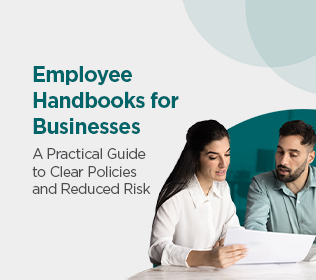
Sexual harassment is a broad term that could encompass any number of behaviors in a workplace ranging from questionable to explicitly forbidden. The complexity around the term “sexual harassment” itself is one reason why it’s so important for employers to be aware of compliance requirements around harassment, and actively work toward creating a harassment-free workplace.
What Makes Sexual Harrasment Compliance So Confusing?
According to the U.S. Equal Employment Opportunity Commission, “It is unlawful to harass a person (an applicant or employee) because of that person’s sex. Harassment can include “sexual harassment” or unwelcome sexual advances, requests for sexual favors, and other verbal or physical harassment of a sexual nature. Harassment does not have to be of a sexual nature, however, and can include offensive remarks about a person’s sex. For example, it is illegal to harass a woman by making offensive comments about women in general.”
That means what is considered “harassment” is likely to vary on a case-by-case basis. Employers are subject to remain compliant with all local, state, and federal regulations. Laws tend to vary state-by-state, which often makes compliance trickier for businesses that employ workers in multiple states.
Whether or not your state requires compliance, the best course of action for all employers is to be proactive in creating a work environment that is safe for all employees. Here are two reasons why:
Why Is Sexual Harassment Compliance Important?
Whether or not your state requires compliance, the best course of action for all employers is to be proactive in creating a work environment that is safe for all employees. Here are two reasons why:
1. It’s Good for Your Employees
The party who suffers the most from any kind of harassment is undoubtedly the person on the receiving end of unwanted advances or comments. That means when businesses take active steps to nurture a harassment-free environment, the greatest beneficiaries are their employees.
A report from the Society for Human Resources Management (SHRM) shows that employees rate respectful treatment of all employees as the most important factor in job satisfaction. Maintaining high standards of a harassment-free workplace sends the right message to both current and future employees about your company’s core values. It also goes a long way in making your employees feel safe.
2. It’s Good for Business
A commitment toward maintaining a harassment-free workplace is not only good for your employees – it’s good for your bottom line, too. Employee satisfaction is a key factor in employee retention, and high employee retention is critical to driving growth in both local and global business markets that are rapidly evolving. Employees who feel safe, appreciated, and cared for are more productive, ultimately enabling your business to achieve more.
If all that isn’t enough, failure to comply with federally or otherwise mandated sexual harassment compliance laws may result in costly fines and penalties that could be detrimental to a business. Even a single accusation of harassment can be enough to ruin a company – or at least cause a major PR nightmare. Bad publicity of any kind can have far-reaching effects that last long after the incident itself – perhaps decades into the future.
As your business expands, so does its legal liability to maintain compliance with a wide range of local, state, and federal regulations – including those which prohibit sexual harassment in the workplace. Stay tuned for more as we explore some practical ways for businesses to foster a harassment-free workplace on our blog. And if you’d like to learn how a PEO can help your business maintain and implement best practices for prevention along with sexual harassment compliance, contact us to get connected with a certified specialist today.




